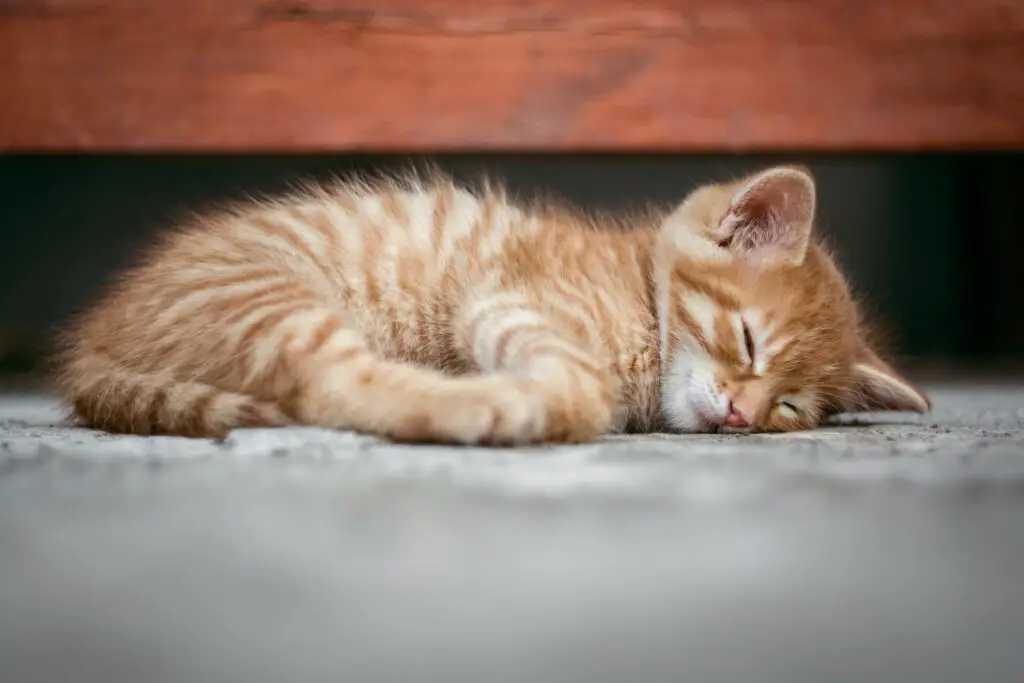Cats are known for their love of sleep. In actuality, they sleep for 12 to 16 hours on average each day. This may seem like a lot to humans, but there are several reasons why cats need so much sleep.
Cats, our enigmatic and graceful companions, have a knack for catching our attention. Whether they’re frolicking around the house or lounging in a sunbeam, there’s one aspect of their lives that never ceases to intrigue us: their propensity for sleep. If you’ve ever found yourself pondering, “Why do cats sleep so much?” you’re not alone. In this article, we’ll delve into the secrets of our feline friends’ slumber habits, exploring the reasons behind their seemingly endless siestas.

Cats are natural predators, and in the wild, they’d hunt for their food. To conserve energy for the crucial task of stalking and capturing prey, cats have evolved to become crepuscular animals, meaning they are most active during dawn and dusk. The rest of the day is spent resting, allowing them to recharge for their next hunting adventure.
Conserving energy
Cats are predators, and hunting takes a lot of energy. Even though domestic cats don’t have to hunt for their food, the instinct to conserve energy remains. Sleeping helps cats to rest and recharge their batteries so that they can be alert and ready when they need to be.
Crepuscular animals
Due to their crepuscular nature, cats are most active during dawn and twilight. This is when their prey is most active, so cats have evolved to be most alert and focused during these times of day. Cats generally snooze the rest of the day away.
Boredom
If a cat is bored, it may sleep more than usual. This is because sleep is a way for cats to pass the time. If your cat is sleeping more than usual, try providing it with more enrichment activities, such as puzzle toys or climbing structures.
Stress or anxiety
Like humans, cats can also be affected by stress and anxiety. If a cat is feeling stressed or anxious, it may sleep more than usual. If you think your cat may be stressed or anxious, talk to your veterinarian about ways to help it.
Illness or injury
If a cat is sick or injured, it may sleep more than usual. This is because the body needs rest to heal. If you are concerned about your cat’s sleeping habits, be sure to take it to the veterinarian for a checkup. Cats are known for their love of warmth. They often seek out cozy spots to snooze, like sunny windowsills or your laptop keyboard. This behavior is a part of their thermoregulation strategy. By staying warm, they can conserve energy and maintain optimal body temperature, making those lengthy catnaps even more appealing.
How much sleep should my cat get?

The amount of sleep a cat needs varies depending on its age, health, and activity level Adult cats tend to sleep less than kittens and older cats. Sleeping patterns differ between active and inactive cats.
Consult your veterinarian if you have any concerns about your cat’s sleeping patterns. They can assist you in figuring out whether your cat is receiving the appropriate amount of sleep and whether any underlying health issues exist.
How to improve your cat’s sleep
You can do the following things to promote your cat’s improved sleep:
Make sure your cat has a cozy and secure area to sleep. This might be a cat bed, a box with blankets inside of it, or even your lap.
Make sure the location where your cat sleeps is quiet and away from traffic and noise.
Clean and maintain your cat’s sleeping space.
Feed your cat a healthy diet and provide it with plenty of fresh water.
Exercise your cat regularly. A tired cat is a more likely to sleep well.
If your cat is sleeping more than usual, talk to your veterinarian to rule out any underlying health concerns.
It’s important to understand that catnaps serve several essential purposes in a feline’s life. These frequent bouts of sleep offer numerous benefits.
By sleeping frequently and in short bursts, cats effectively conserve their energy for hunting, playing, and other activities.
Sleep is vital for a cat’s emotional well-being. It allows them to reset and remain alert when they need to be, helping them cope with stress and anxiety.
